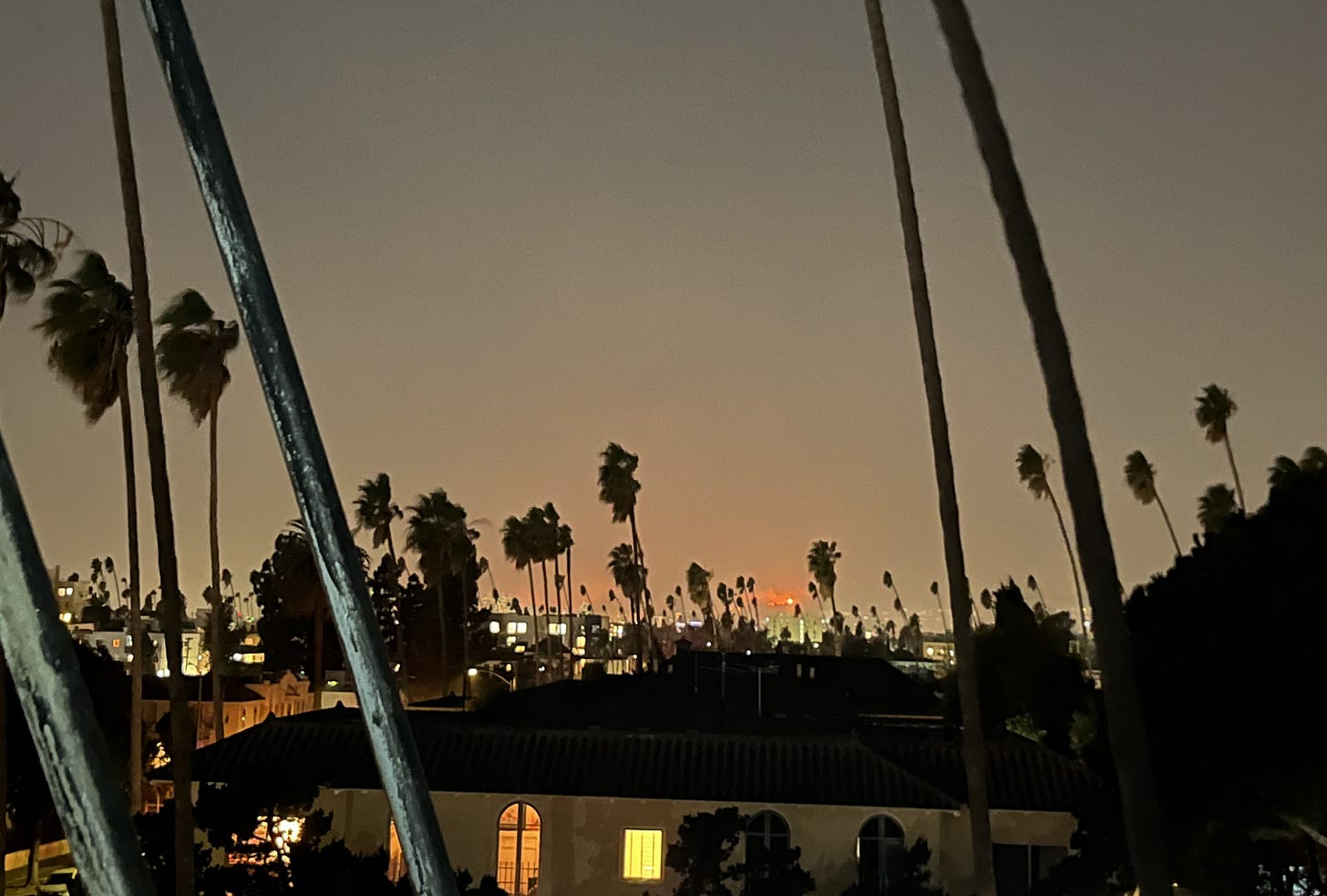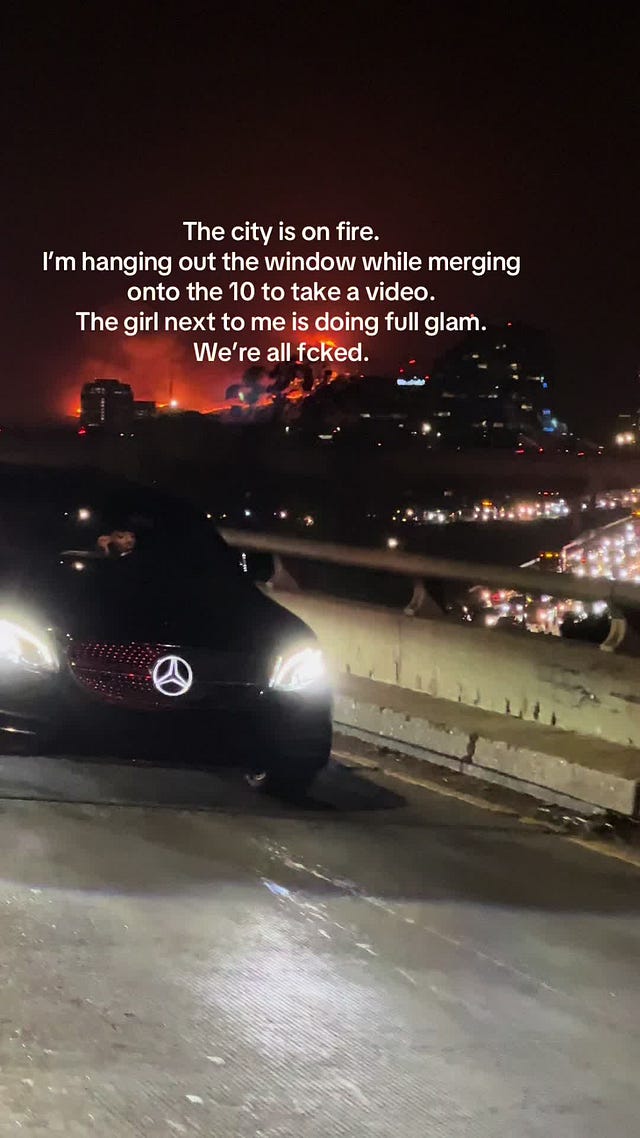Fires and the facts
The breaking-news experience is awful for consumers.
The air outside smells of exhaustion, and the sky over the palm trees is the color of dirty water from a janitor’s bucket. The Los Angeles fire winds are drafting in through the edges of my ancient apartment windows. I have a headache already. I don’t know if it’s the ash or just from knowing there’s trouble.
I’ve been watching photojournalist friends and colleagues committing their ritual acts of professional heroism in California’s latest disaster: documenting the overwhelmed and overmatched firefighters, the frantic and fleeing innocent, all those homes reduced to mere memory. Wally Skalij captured an eerie nocturne of embers raking a lifeguard’s shack on a beach outside Malibu. Stuart Palley found palm trees outside a McDonald’s in Altadena alight like roman candles.
Even in crisis, a city can’t stop playing itself. “You’re an actor,” KTLA 5’s Gene Kang told a windswept local on Palisades Drive, realizing mid-broadcast that he was interviewing “Police Academy” star Steve Guttenberg. Opening TikTok, I’m presented with a video shot from the 10 Freeway that caught a Mercedes driver doing her makeup in the mirror as she drives away from the flames.
 Tiktok failed to load.
Tiktok failed to load.Enable 3rd party cookies or use another browser
One of the odd experiences of this week’s local disaster for me was that it was my first in years where I wasn’t working in a newsroom, a privileged position where information from your colleagues pummels you in the face through nonpublic channels like Slack. This time, I’m a civilian. And this time, the user experience of getting information about a disaster unfolding around me was dogshit.
X did okay, but its days are over as an agreed-upon meeting spot for the breaking news journalists who no longer feel like working for Elon Musk for free. Apart from a silly civilian video or two (and a solid professional livestream from BBC), TikTok was largely indifferent to whether I live or die. Some people shared slides from reputable local news outlets on Instagram, but the offerings from my hometown L.A. Times last night were relatively meager, Patrick Soon-Shiong having gutted its audience editors and reporters’ ranks over the past two years, while shoving a weird, nonsensical and non-union live feed from “L.A. Times Studios” (no one knows what that is) at the top of latimes.com. The Times’ news production capacity — which is not the same thing as Los Angeles’ overall news production capacity, but it’s not totally far off either — is now probably at its smallest point in a century. Those left are still at their posts, carrying out their duties. Like about the fire hydrants running out of water. Legacy news coverage, even though there’s less of it than ever, will drive platform discussion of the fires in the days to come anyway, even if nobody realizes it. That is the plight of your modern journalist.
The thing that happened with the death of mass media and the rise of the internet’s slop era feels like the same thing that happened with the shift from defined-benefit pensions to defined-contribution 401(k) retirement plans. In the old days, the news about a big fire was going to get handed to you. It was going to be on the handful of TV channels where you watch sitcoms, or on the front page of the newspaper that you had subscribed to for the sports section. Today, whether you get fire news is something you have to proactively seek and even weed out for. It’s a “you” problem that TikTok will happily serve up joke videos until the moment of your death.
It doesn’t have to be this way. But right now, the people in charge are not motivated to do anything about it.




In all seriousness, it’s really interesting to me that Watch Duty, a nonprofit app, gave me way more local news about what was happening with the fires and whether I should evacuate than any local media.
Your comparison to the change in the pension system is apt. What can we do about it?
I’ve tried to follow journalists I respect into other platforms (eg Substack, and far in the past, Twitter) but social media is like navigating a boat made of cardboard through a snake infested swamp now. I keep up with traditional media but scream at skewed headlines and PR pieces.
Grateful for the journalists trying to keep their souls together in this.